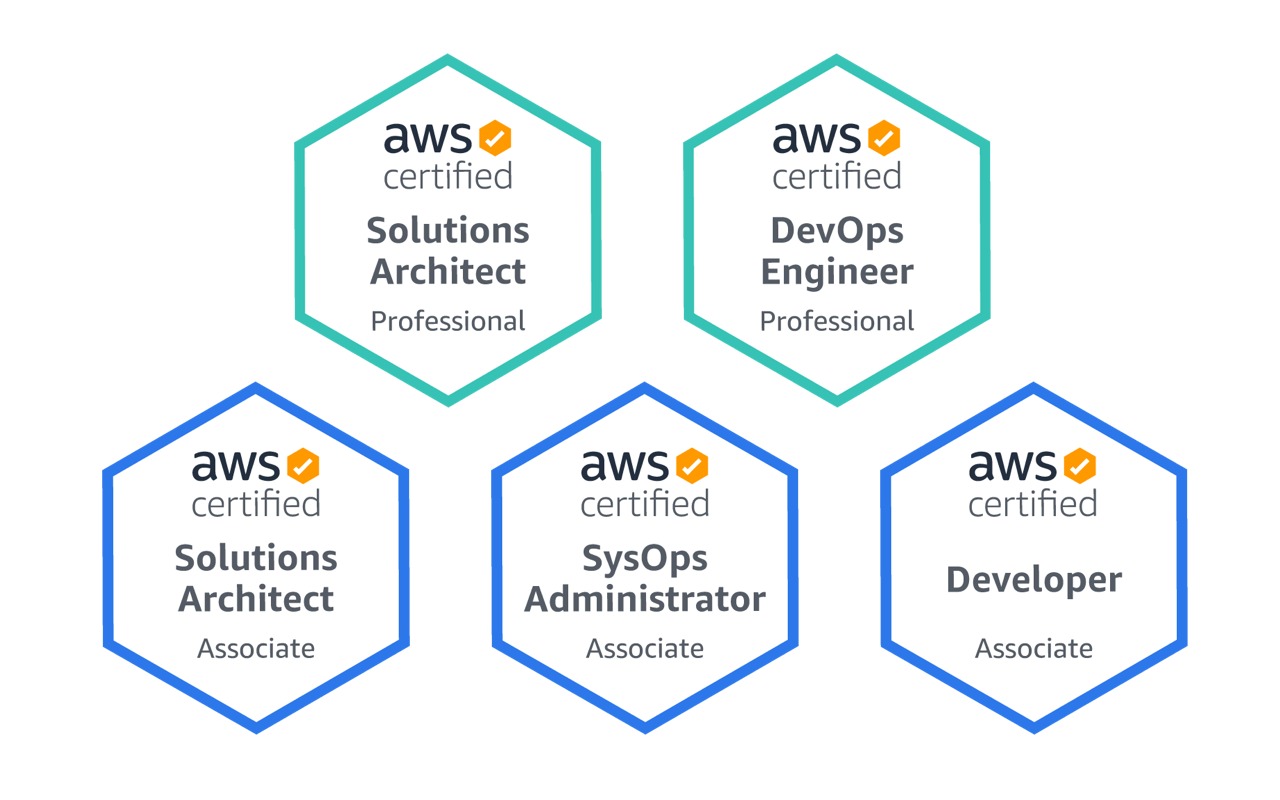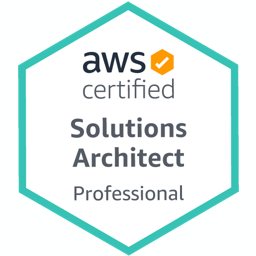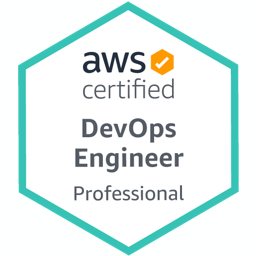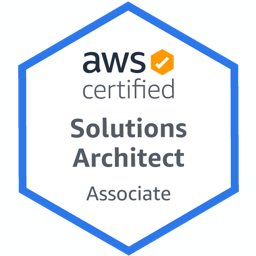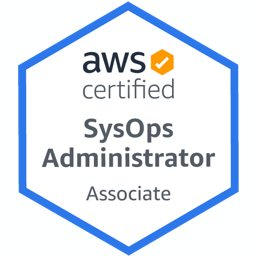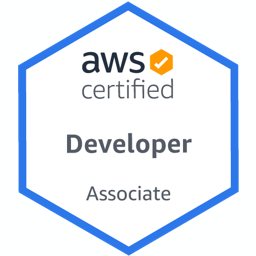To begin with, wishing you a happy new year in 2019! I hope that the new year brings more health, joy, and success to you and more peace to the world.
Almost two weeks ago, I passed the AWS Certified Solutions Architect - Professional exam with a 91% score and completed my goal of holding all five core AWS certifications for 2018. At the beginning of last October, I also passed the AWS Certified DevOps Engineer - Professional exam with an 85% score. Unfortunately, I could not have time to write a post about my experiences until now. So, today I would like to share them briefly.
My path to Associate-level certifications
I met with AWS around five years ago with one of the oldest and the most popular AWS services: Amazon S3. I was trying to set up Pisirpaylas in a reliable architecture on Linodes, and I needed a way to store images uploaded by our users in a reliable and scalable way. It was when I started using Amazon S3 with Ruby’s Paperclip gem, as well as Amazon SES for sending registration emails to our users. At that time, AWS had only Ireland region in Europe, and considering that they announced the 6th one in Milan recently, it is incredible to witness their growth.
I was new to the cloud in those days. But as an experienced developer and one-person team, manually installing everything in a single server was not my thing. While researching on the Internet for possible alternatives, I heard that some giants like Facebook were maintaining thousands of servers with a small team using Chef, and I decided to give it a try. I set up an Open Source Chef Server and provisioned my environment on Ubuntu servers using Chef recipes.
Then, in June 2015, there was an AWS event in Istanbul, AWSome Day. At that event, I met with other AWS managed services like Amazon RDS, ElastiCache, SQS, SNS, and was amazed by how they simplified management tasks. I decided to migrate Pisirpaylas to AWS to benefit from these services and its pace of innovation. OpsWorks was new at those times. I also realized that CloudFormation would also help me to manage my resources as code and in an automated way. So, I built a network stack for a VPC, a database stack for RDS, ElastiCache, and Elasticsearch, and an application stack for Elastic Load Balancing, Autoscaling, and so on. Then, I migrated Pisirpaylas fully to AWS.
All these work, helped me a lot in passing my AWS Certified Solutions Architect - Associate (with 83%), SysOps Administrator - Associate (with 87%), and Developer - Associate (with 96%) exams last year in July in only two weeks. I also watched A Cloud Guru’s certification courses during my preparation, but gaining hands-on practice helped me a lot more. But, of course, those courses help you structure your exam preparation. So, I also recommend you watch them, too. An Associate exam costs $150, and a Professional one costs $300. Hence, it would be better to prepare in full before sitting these exams not to waste your money.
My AWS Certified DevOps Engineer - Professional certification
After my Associate certifications, I started getting freelancing work on AWS and helping my clients with my knowledge and experience. I continued my work with core AWS services; but, I also added new ones like AWS Lambda, API Gateway, CodePipeline, CodeBuild, CodeDeploy, etc. I removed ElastiCache-Redis and Sidekiq from Pisirpaylas and replaced it with SQS and S3 event notifications for triggering AWS Lambda functions. I developed lots of CI/CD pipelines for various projects such as PHP, serverless APIs, infrastructure provisioning with CloudFormation, etc. Besides, I read lots of AWS papers, especially Well-Architected Framework to serve my clients better.
After more than a year since taking all associate-level certifications, I felt that it was the time to get professional ones. I already knew Elastic Beanstalk and OpsWorks, but I made more hands-on labs on them. I was strong at CloudFormation. I was even creating custom resources as you would remember from my blog post about it last year.
Aside from hands-on practices and reading lots of whitepapers, I watched both A Cloud Guru and Linux Academy courses, but I found A Cloud Guru more to the point. I think these courses do not teach you how to become an expert, but they guide you well to assess where you are stronger or weaker. Then, you can practice more on areas you leak knowledge or experience.
Similarly, I solved practice exams, too. But, there is no consensus in these practice exam answers, because they are based on opinions of the creators of those practice exams. Again, they help you to understand where you need to spend your time gathering more information.
I got 80% from the practice exam the day before taking the actual one. I passed the real AWS Certified DevOps Engineer - Professional exam with 85% in October, the 3rd. Then, I gave a break to dedicate some time to my existing projects and clients.
What you should know for passing AWS Certified DevOps Engineer - Professional exam
First of all, you need to know AWS CloudFormation in the advanced level. Stack policies, resource policies, nested stacks, custom resources, handlers, etc. I was lucky to be using them.
Second, you should know Elastic Beanstalk deployment methods inside and out. I have a blog post about it, too.
Third, you need to know how OpsWorks works and its lifecycles. Again, I had experience in Chef, so it helped me a lot.
In addition to these, you should know disaster recovery solutions, blue-green deployments, canary releases, as well as EC2 autoscaling in detail.
There are also general questions about security, IAM, and these are shared topics by both professional-level exams.
My AWS Certified Solutions Architect - Professional certification
This certification is regarded as one of the hardest ones in IT. It spans a broad range of AWS services, and you should know most of them well. Here, I must say that working as a freelancer helped me a lot. Because you come across really interesting and sometimes weird projects especially on Upwork. If I have some time, I often get curious and solve them by myself even if I do not take those projects :)
Finally, at the beginning of last December, I decided to sit for the AWS Certified Solutions Architect - Professional exam. Again, I watched A Cloud Guru courses. This time, I also solved the Whizzlabs practice exams. As before, I had objections to some of their answers. But they provided a good framework for me while preparing for the exam.
Two days before the exam, I solved the practice exam and got 75%. I marked down the fields I might be lacking some information. But, when I took the exam two days later, I passed it with 91%. I received 100% score in High Availability and Business Continuity, Costing, Deployment Management, and Network Design domains.
What you should know for passing AWS Certified Solutions Architect - Professional exam
Well, you should know lots of things. You should know when to use IAM roles, identity federation, DDOS protection on AWS, and have a general knowledge about AWS security best practices.
You should know the differences between EMR and Kinesis. Kinesis family and Elasticsearch fit real-time analytics needs well. On the other hand, Amazon EMR is very useful as a Hadoop platform for big data processing batch jobs that do not require real-time insights. You should also know what AWS Data Pipeline is and that it can launch EMR clusters to process/transform data.
Knowing how to scale DynamoDB tables will help you a lot during the exam. Again, EC2 autoscaling is a must, as well as Amazon CloudFront.
Although this exam does not cover as much as the DevOps Engineer exam, you should know CloudFormation, Opsworks, and Elastic Beanstalk, too. I saw some Docker deployment questions for custom applications, as well.
In addition to the above, you should know AWS storage services in-depth, how to use them for both scalable solutions such as serving videos, as well as backup solutions in a hybrid environment. You should know VPCs, VPN gateways, Direct Connect, and how they work.
Conclusion
Of course, certification exams help you in your carrier. But, as a freelancer, I use them as a personal goal to assess and validate my knowledge. They give me insights about where I should dedicate time to learn more.
I am happy to pass both of the professional certifications with high scores. Passing them gave me more confidence as an AWS expert. In the end, what matters is how you serve your clients and what you do in their jobs. Besides, if you are a freelancer, you have to care for the work you do. It is your signature.
Thanks for reading and happy new year!
References
I am leaving some whitepapers below that may help you during preparation.
- AWS Well-Architected Framework
- AWS Storage Services Overview
- AWS Security Best Practices
- AWS Best Practices for DDoS Resiliency
- Blue/Green Deployments on AWS
- Introduction to DevOps on AWS
- Big Data Analytics Options on AWS
- Streaming Data Solutions on AWS with Amazon Kinesis
- Practicing Continuous Integration and Continuous Delivery on AWS

